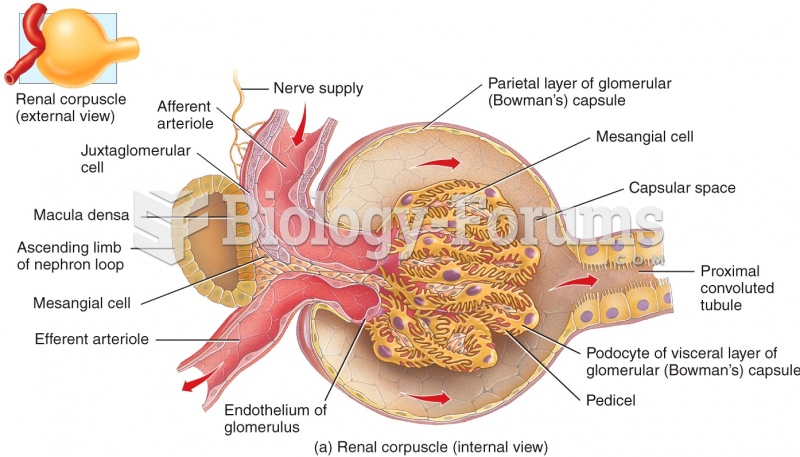|
|
|
There used to be a metric calendar, as well as metric clocks. The metric calendar, or "French Republican Calendar" divided the year into 12 months, but each month was divided into three 10-day weeks. Each day had 10 decimal hours. Each hour had 100 decimal minutes. Due to lack of popularity, the metric clocks and calendars were ended in 1795, three years after they had been first marketed.
Parkinson's disease is both chronic and progressive. This means that it persists over a long period of time and that its symptoms grow worse over time.
The heart is located in the center of the chest, with part of it tipped slightly so that it taps against the left side of the chest.
The average human gut is home to perhaps 500 to 1,000 different species of bacteria.
By definition, when a medication is administered intravenously, its bioavailability is 100%.







